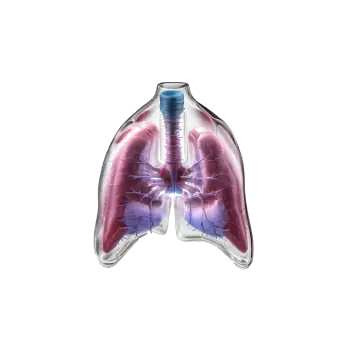Quick version
Thyroid Function During Menopause
Decreased levels of estrogen can affect thyroid receptors and disrupt its ability to regulate the body's metabolism. According to a study published in the Journal of Thyroid Research (2011), this means that women in menopause run a higher risk of developing hypothyroidism (underactive thyroid) or hyperthyroidism (overactive thyroid). This, in turn, can exacerbate common menopausal symptoms such as fatigue, weight gain, and mood swings. It is therefore important to regularly monitor thyroid levels if symptoms arise that affect daily life.
The Impact of Menopause on the Thyroid
The hormonal fluctuations during menopause can also affect the body's response to thyroid hormones. Low estrogen levels may reduce sensitivity to thyroid hormones, making symptoms of thyroid dysfunction more pronounced. Additionally, women with pre-existing thyroid conditions, such as Hashimoto's thyroiditis, may experience an increase in symptom severity.
Common Symptoms and Overlaps
The symptoms of thyroid dysfunction and menopause often overlap, which can complicate an accurate diagnosis. Here are some common symptoms that may occur with both conditions:
- Fatigue and low energy
- Weight gain or difficulty losing weight
- Mood swings and depression
- Memory problems and difficulty concentrating
- Changes in body temperature, such as feelings of coldness or hot flashes
If you experience these symptoms, it is important to consult a doctor, as an accurate diagnosis is essential for receiving appropriate treatment.
How to Manage Symptoms
Managing symptoms of both menopause and thyroid dysfunction often requires a combination of medical interventions, lifestyle changes, and self-care. Here are some practical steps to alleviate and manage these symptoms:
- Visit a doctor to check your thyroid hormones
Schedule regular health check-ups to monitor thyroid levels (TSH, free T4, and T3) and other hormone levels. This is especially important if you already have a thyroid condition or experience symptoms indicative of hormonal imbalance. Learn more about our most popular thyroid test.
- Improve diet and nutrient intake
Support your thyroid and overall health with a balanced diet. Foods rich in iodine, selenium, and zinc, such as fish, eggs, nuts, and whole grains, can help maintain stable thyroid function.
- Engage in physical activity
Regular physical activity, such as walking, yoga, or strength training, can help alleviate symptoms related to both menopause and thyroid conditions. Exercise also improves mood and sleep quality.
- Manage stress
Stress can exacerbate symptoms of both menopause and thyroid dysfunction. Try relaxation techniques such as meditation, deep breathing, or mindfulness to reduce stress levels.
- Hormone therapy
In some cases, hormone replacement therapy (HRT) may help alleviate menopausal symptoms, but this should be discussed with your doctor, especially if you have a thyroid condition.























